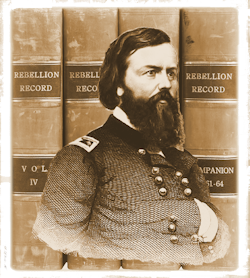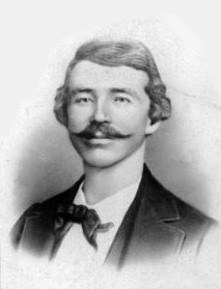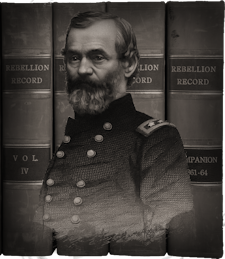February 16.—The ship E. W. Farley, having on board six companies of the Eighth regiment of New-Hampshire volunteers, sailed from Boston, Mass., for Ship Island, Miss.
—The Mississippi, the Organ Democrat, and Los Angelos, and California Star have been suppressed from the mails, on the ground that they have been used for the purposes of overthrowing the Government, and giving aid and comfort to the enemy now at war against the United States. —New-York World, February 17.
—Brig.-gen. Price, a son of Sterling Price, Col. Phillip, Major Cross, and Capt. Crosby were captured near Warsaw, Mo., by Capt. Stubbs, of the Eighth Iowa regiment They had some five hundred recruits with them, in charge, but they had just crossed the Osage River, and as Capt. Stubbs had but a small force, he did not follow them.—N. Y. Commercial, February 20.
—The United States gunboat St. Louis, under command of Com. A. H. Foote, proceeded up the Cumberland River, Tennessee, this afternoon, and destroyed, a few miles above Dover, the Tennessee Iron Works, which had been used for the manufacture of iron plates for the rebel government. One of the proprietors, named Lewis, was taken prisoner.—Chicago Post.
—Fort Donelson, Tenn., with from twelve to fifteen thousand prisoners, at least forty pieces of artillery, and great quantities of stores, was surrendered, this morning, to the Union forces under Gen. Grant.
A small squadron of gunboats, convoying several transport steamboats, and a large body of troops, were despatched from Cairo, Ill., on the eleventh; and, on the morning of the twelfth instant, three divisions of troops, under Generals McClernand, Smith, and Wallace, left Fort Henry, both destined for operations in front of Fort Donelson.
The latter body moved in two columns; and at noon of the twelfth, the head of Gen. McClernand’s column came to the outposts of the enemy, and drove in his pickets; the remainder of the day being occupied in assuming the positions to which the different corps had been assigned, and with occasional skirmishing on the line. Gen. McClernand’s command formed the right of the extended line, with his right resting on Dover; while the command of Gen. Smith formed the left, his left extending to the creek on the north of the Fort.
The night of the twelfth was spent quietly; and on the following day, also, but little was attempted by the army, in consequence of the nonarrival of the gunboats, and the reenforcements which had been sent from Cairo by water. The gunboat Carondelet, however, under direction of Gen. Grant, approached the Fort, on the morning of the thirteenth, and, after two hours’ steady fire, during which she expended nearly two hundred shots, she was compelled to withdraw from the action to repair damages.
The gunboats St Louis, Pittsburgh, Louisville, and Conestoga, with sixteen transports and about ten thousand fresh troops, having arrived at the place of rendezvous, preparations were made for attacking the enemy’s works; and at two o’clock on the fourteenth, the St. Louis, Louisville, Pittsburgh, and Carondelet, forming a single line in front, with the Conestoga and Tyler a quarter of a mile in the rear, moved up the river, receiving the fire of the enemy’s lower batteries. At seven minutes to three the St. Louis opened her fire with an eight-inch shell, which was kept up with great spirit during an hour and a half, bidding fair to result very favorably. The iron-clad boats took a position within three hundred yards of the batteries, silenced the water-battery, and drove its gunners from their posts; but the “plunging shot” from the batteries having entered the pilothouse of the St. Louis and shattered her wheel, and the other vessels having also suffered severely, the Commodore ordered the squadron to drop down the river; and the action ceased.
These mishaps led to the determination, by Gen. Grant, to make the investment of the Fort as perfect as possible, to strengthen his position, and to await the repair of the gunboats; but the enemy frustrated all his purposes.
Soon after daybreak, on the morning of the fifteenth, the extreme right of the Union line, near the river, below the Fort, was attacked by a heavy body of the enemy’s forces. The Eighth and Forty-first Illinois regiments, first received the shock; and they maintained their position with great coolness, until reenforcements joined the assailants, when McAllister’s and Schwartz’s batteries were also attacked and captured. The Eighteenth, Twenty-ninth, Thirtieth, and Thirty-first Illinois were quickly moved to the support of their associates; and after a desperate struggle, in which both sides displayed great daring, all but three of the pieces of the captured batteries were recovered by the Union troops. At length, overpowered by numbers and without ammunition, the Illinoians were compelled to fall back; and the enemy, with cheers, pressed forward and outflanked them on the right, when the Seventeenth and Twenty-fifth Kentucky, and the Thirty-first and Forty-fourth Indiana regiments, all under Col. Cruft, were brought up to support the failing fortunes of the Union men. An unfortunate mistake, on the part of this reenforcement, led the Twenty-fifth Kentuckians to pour a volley into the ranks of the Thirty-first Illinoians, causing terrible loss, and increasing the confusion, of which the enemy promptly availed himself by pressing forward with greater energy than before.
A few minutes afterward, Col. Wallace’s brigade, embracing the Eleventh, Twentieth, Forty-fifth, and Forty-eighth Illinois regiments, came up; but so completely had the enemy brought up his forces, that they were compelled to fall back with very heavy loss; notwithstanding, in another part of the line, another strong body of the enemy was driven back by the Forty-eighth, Fifty-eighth and Seventy-sixth Ohio, and the First Nebraska regiments and Taylor’s Chicago battery.
At this moment the prospect was gloomy enough. The Union men had been repulsed, with the loss of six pieces of artillery, and great numbers of officers and men; and the enemy held the dearly-bought position. Gen. Grant saw the emergency, and he hastened to meet it. Gen. Smith was ordered to make a strong assault on the left of the line, and to carry the position at all hazards; while preparations were also made to renew the operations on the right, with a view to recover the position which had been lost in the morning.
Gen. Smith immediately ordered Col. Cooke, commanding the Third brigade of his division, to move with his command—embracing the Seventh, Fiftieth, and Fifty-second Illinois, the Twelfth Iowa, and Thirteenth Missouri regiments—against one portion of the enemy’s lines; while, with the Fourth brigade, commanded by Col. Lauman— embracing the Second, Seventh, and Fourteenth Iowa, and the Twenty-fifth Indiana regiments–he, in person, dashed against another part of the works.
The Second Iowa regiment led the advance, followed by the Fifty-second Indiana; and the other regiments of the brigade, while the sharpshooters were deployed on either flank as skirmishers. The column of attack moved forward, without firing a gun, and charged into the work, driving the enemy before it at the point of the bayonet, and occupying the position. The colors of the Second Iowa occupied the post of honor; but the loss with which it was purchased was immense.
The successful result of this desperate struggle inspired the troops, and in every portion of the line of offence the wildest enthusiasm prevailed.
Soon afterwards Col. Smith, commanding the Fifth brigade, moved the Eighth Missouri and Eleventh Indiana regiments against the position, on the extreme right of the line, from which the Union troops had been driven, at an earlier hour of the day; and part of the First brigade, commanded by Col. Cruft—embracing the Thirty-first and Forty-fourth Indiana regiments—was moved to his support The assault was made in two columns ; and it was a complete success, the hill was carried by storm; and the enemy was driven into his works, amidst the hearty cheers of the victors.
No further movements were made during the fifteenth; both armies occupying their respective positions and preparing for a renewal of the engagement this morning. At daybreak, however, the enemy sounded a parley and displayed a white flag, to which Col. Lauman, commanding the Fourth brigade, responded; and proposals for a surrender were tendered and accepted.
Generals Floyd and Pillow, with about five thousand of the garrison, escaped in the night; and these who surrendered embraced Generals Buckner and Tilghman, some fifteen thousand prisoners, twenty thousand stand of arms, immense quantities of stores, etc.
During the action on the fourteenth, the gunboats suffered severely. The St. Louis was struck sixty-one times, and lost ten men killed and wounded. The Pittsburgh was struck forty-seven times, and lost two men, wounded; the Carondelet was struck fifty-four times, and lost thirtythree men; and the Louisville was struck about forty times, and lost nine men.—(Doc. 46.)




